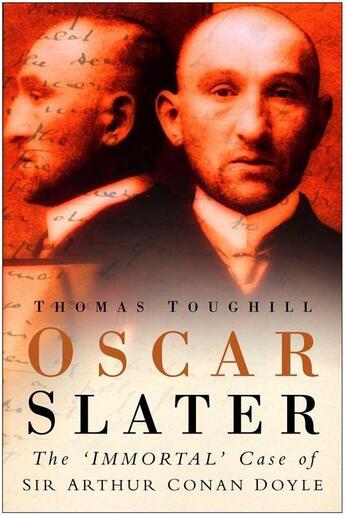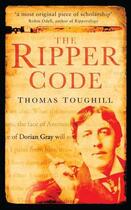-
Nombre de pages : (-)
-
Collection :
(-)
-
Genre :
(-)
-
Thème :
Non attribué
-
Prix littéraire(s) :
(-)
Résumé:
In 1909, Oscar Slater, a German Jew was convicted and sentenced to death for the brutal murder of Marion Gilchrist, an elderly Glaswegian spinster. His trial is now known to have been one of the most scandalous miscarriages of justice in the annals of legal history. This book is a masterful and... Voir plus
In 1909, Oscar Slater, a German Jew was convicted and sentenced to death for the brutal murder of Marion Gilchrist, an elderly Glaswegian spinster. His trial is now known to have been one of the most scandalous miscarriages of justice in the annals of legal history. This book is a masterful and highly readable unravelling of this infamous case. Tommy Toughill includes material which has only recently come to light, including the correspondence of Sir Arthur Conan Doyle (who waged a long campaign to get Slater released) and the once and future Prime Minister, Ramsey Macdonald, who stated 'the Scottish legal authorities and the police strove for Slater's conviction by influencing witnesses and with-holding evidence.' Oscar Slater was finally released from prison in 1927 after years of intense public pressure, led by Sir Arthur Conan Doyle and William Roughead, the great criminologist. In the author's quest to clear Oscar Slater's name, and to lay bare the deep corruption both within the police force and at the highest levels of the judiciary, the real murderer is identified for the first time. Toughill also reveals how Slater came to be wrongly convicted. Slater was the victim not merely of a miscarriage of justice, but of a conspiracy between senior law officers intent on framing him in order to protect the real men involved. Toughill gives place of honour to the policeman John Trench who in 1914 made pubic his misgivings about the Slater case. His honesty was 'rewarded with dismissal from the force. Trench's revelations came from material not made available to the defence or consequently the jury. The fact that it has taken nearly 100 years after Slater's conviction to produce evidence that could and should have been used during the original trial is shocking enough. How the legal establishment knowingly witheld this evidence will only serve to fuel further the doubts many continue to have about our judicial system. The mistakes in the system of justice illustrated in the Oscar Slater case are as relevant today, perhaps even more so, as when they happened nearly one hundred years ago.
Donner votre avis















